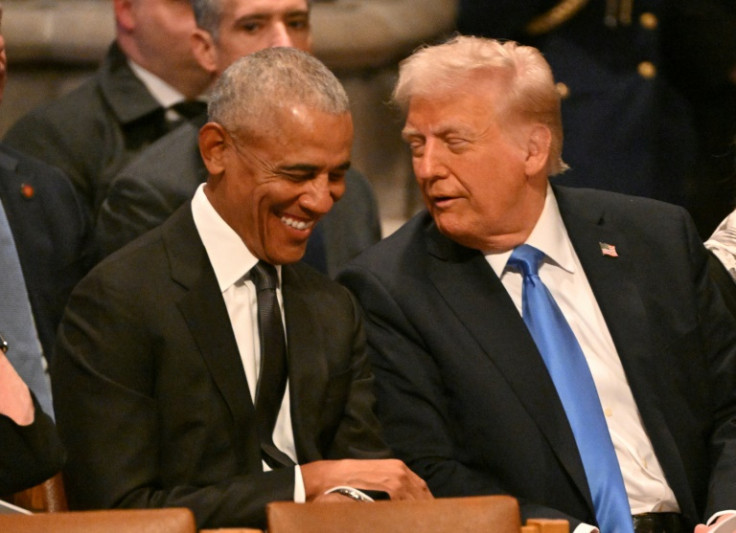Obama Speaks on Kirk's Death: Urges Americans To 'Extend Grace', Blasts Trump Officials For Divide

Former US President Barack Obama has called for calm and 'grace' toward mourners following the assassination of conservative activist Charlie Kirk, warning that the country is at an 'inflection point' amid rising political tensions.
Speaking at a global summit in Erie, Pennsylvania, on 16 September, Obama condemned the killing of a political commentator and described it as 'a tragedy' regardless of his views and accused the Trump administration of fuelling political divisions in the country.
Obama Calls For Grace Amid Political Divide
Obama, who made an appearance on Tuesday night and spoke during the Jefferson Educational Society's global summit. On Kirk's passing, he said choosing a side is 'a threat to all of us', emphasising that 'we have to be clear and forthright and condemn it'.
'When we have the weight of the US government behind extremist views, we've got a problem,' said Obama. 'We're at an inflection point in the sense that we always have to fight for our democracy and we have to fight for those values that have made this country the envy of the world,' he added.
Obama then urged the public to 'extend grace' to those mourning the act of violence that many have lambasted. He also acknowledged that some were fired from their jobs as they cheered for Kirk's demise.
'I didn't know Charlie Kirk,' he said. 'I was generally aware of some of his ideas. I think those ideas were wrong, but that doesn't negate the fact that what happened was a tragedy'.
Obama, while mourning for him and his family, said Kirk was a young man with children and a wife. 'He certainly had a considerable number of friends and supporters who cared about him.'
Obama Slams Trump Administration for Political Divide
Obama argued that his administration, along with others, was more focused on bringing the country together compared to Trump. He referenced Republicans such as George W. Bush, John McCain, and Mitt Romney.
He also believes the US is facing a rise in political violence, accusing US President Trump and his officials of fuelling dissent. He said he didn't empower the 'extreme views' in his White House.
'When I hear not just our current president, but his aides, who have a history of calling political opponents vermin, enemies, who need to be targeted, that speaks to a broader problem that we have right now and something that we're going to have to grapple with, all of us,' said Obama.
Recap of Kirk's Shooting and Gunman's Motive
Kirk was shot and killed on 10 September at Utah Valley University during a speaking tour. Once news of his death made it to the public, Obama issued one of the first public statements about the matter.
We don’t yet know what motivated the person who shot and killed Charlie Kirk, but this kind of despicable violence has no place in our democracy. Michelle and I will be praying for Charlie’s family tonight, especially his wife Erika and their two young children.
— Barack Obama (@BarackObama) September 10, 2025
As per an X post, Obama said that 'this kind of despicable violence has no place in our democracy'. He also noted that he and his wife will be praying for Kirk's family, his wife, and his kids.
The alleged gunman, Tyler Robinson, was detained after more than 30 hours and charged with aggravated murder. His case underscores growing concerns over political radicalisation, online extremism, and the spread of violence tied to ideology.
Robinson allegedly said that he 'had enough of his hatred,' pertaining to Kirk in a text message exchange. Prosecutors noted that Robinson holds 'leftist ideologies' and was 'radicalised' online in recent years. However, a definitive motive has yet to be revealed for the shooting on 10 September.
Congress Responds As Backlash Grows
On 19 September, the US House passed a bipartisan resolution honouring Kirk and condemning political violence, with a 310–58 vote amid Democratic divisions over his record.
Lawmakers including Rep. Jamie Raskin urged colleagues to avoid a 'trap' and back the measure to make a clear stand against violence.
Obama's plea landed amid debates over speech, protest and the boundaries of online commentary. While some critics accused him of politicising the tragedy, his remarks aligned with earlier bipartisan statements urging restraint and respect for the rule of law following high-profile political attacks.
© Copyright IBTimes 2025. All rights reserved.





















